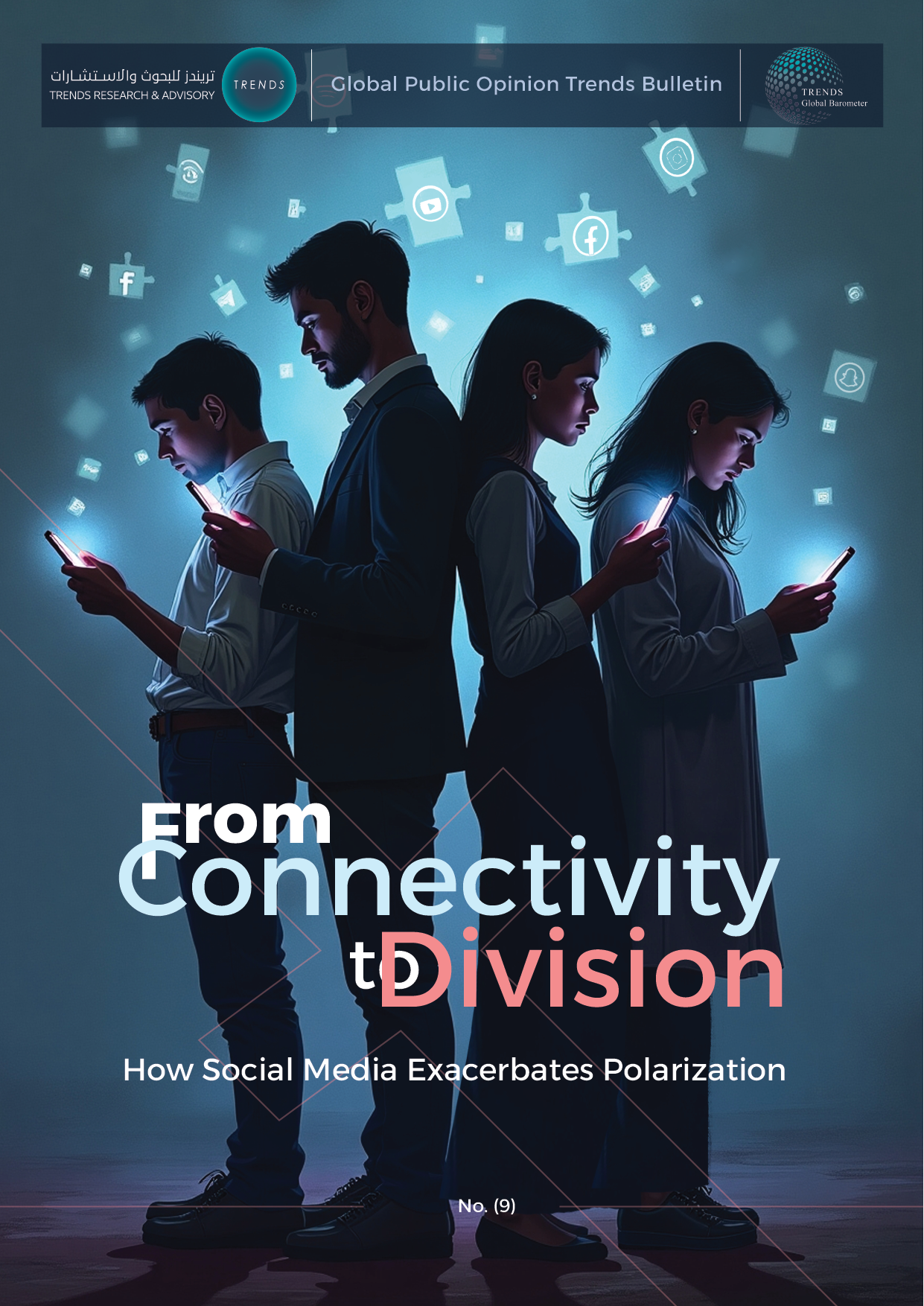The phenomenon of polarization is as old as human history. According to the Oxford Dictionary, polarization is defined as “the act of separating or making people separate into two groups with completely opposite opinions.” While political, ideological, and social factors have long shaped societal divisions, the rise of social media has dramatically intensified this process, accelerated the spread of partisan narratives, and reinforced ideological echo chambers. As of January 2024, social media has become one of the most influential forces shaping modern discourse, with over 5.04 billion users worldwide—accounting for 62.3% of the global population. As these platforms evolve, they have also become hubs for misinformation, algorithm-driven biases, and deepening political divisions. The role and impact of social media remain a recurring subject of investigation. A 2022–2023 Pew Research Center survey of participants across 27 countries found that social media is generally viewed as beneficial to democracies rather than harmful. 3 Despite the majority believing that social media benefits democracy through increased access to information and engagement, concerns persist about its role in spreading misinformation and deepening divisions.



